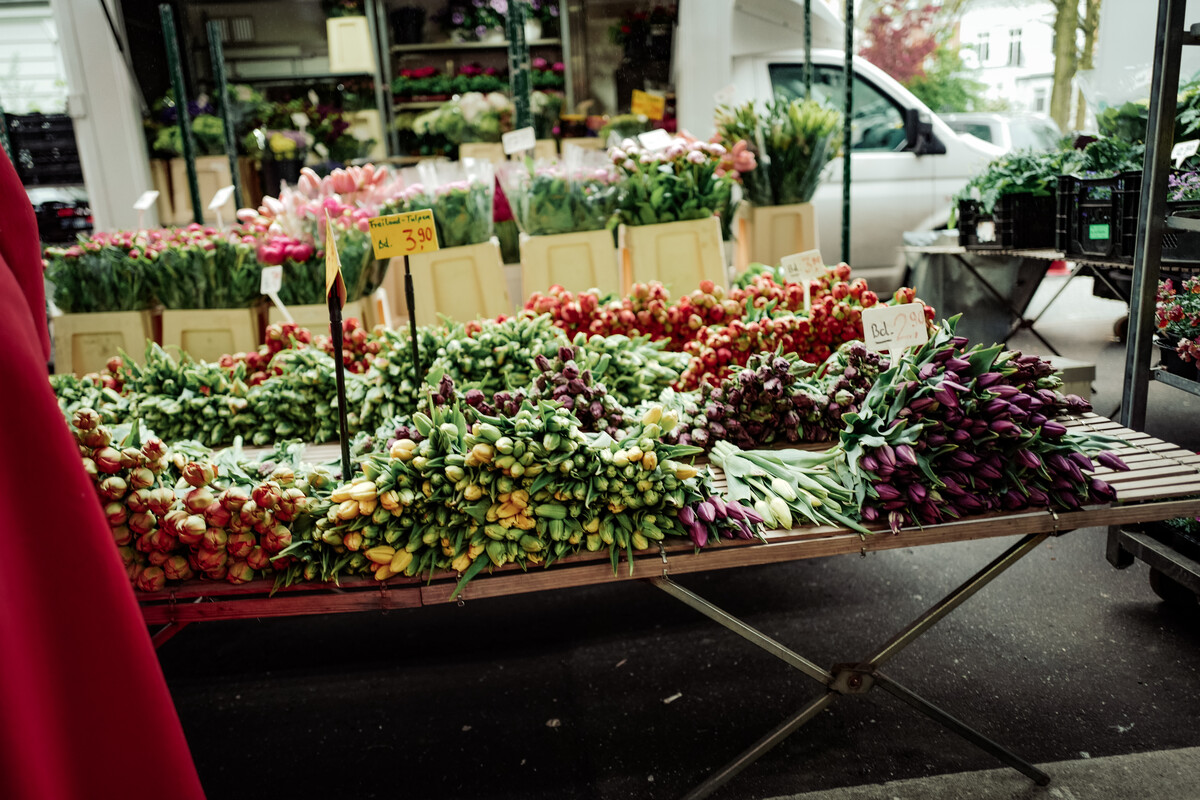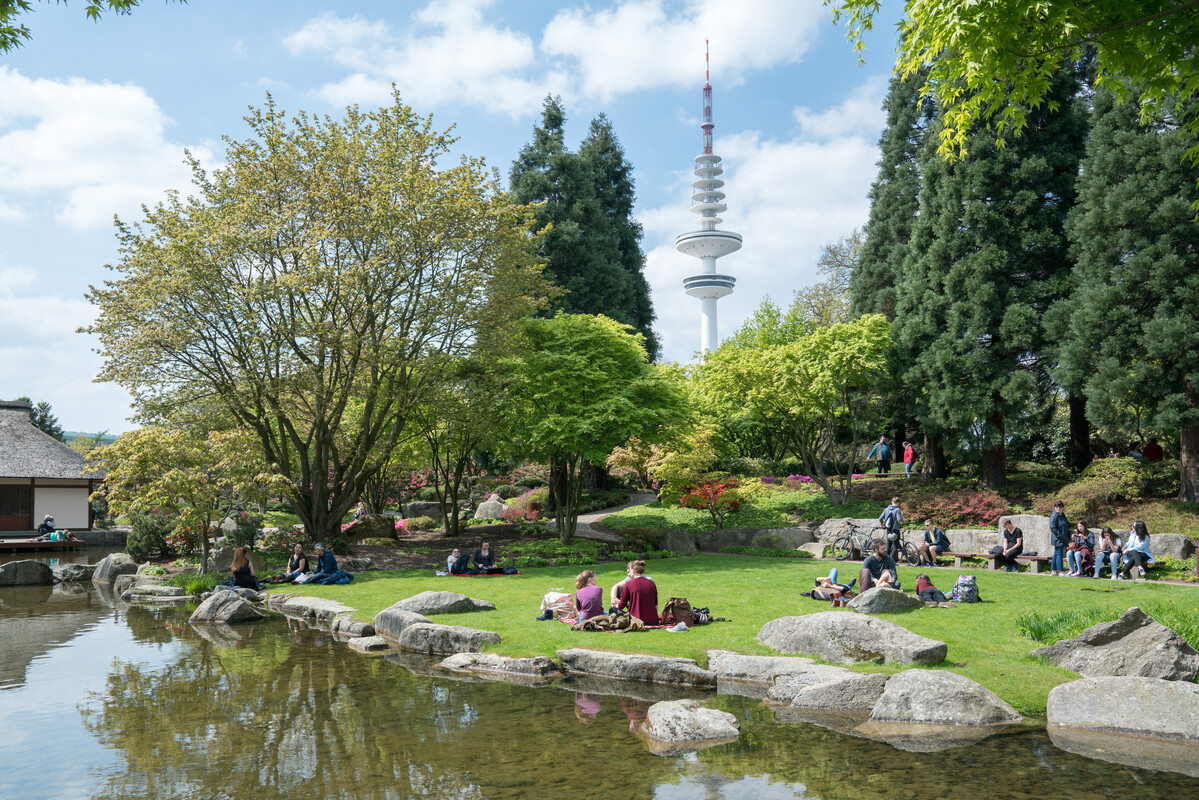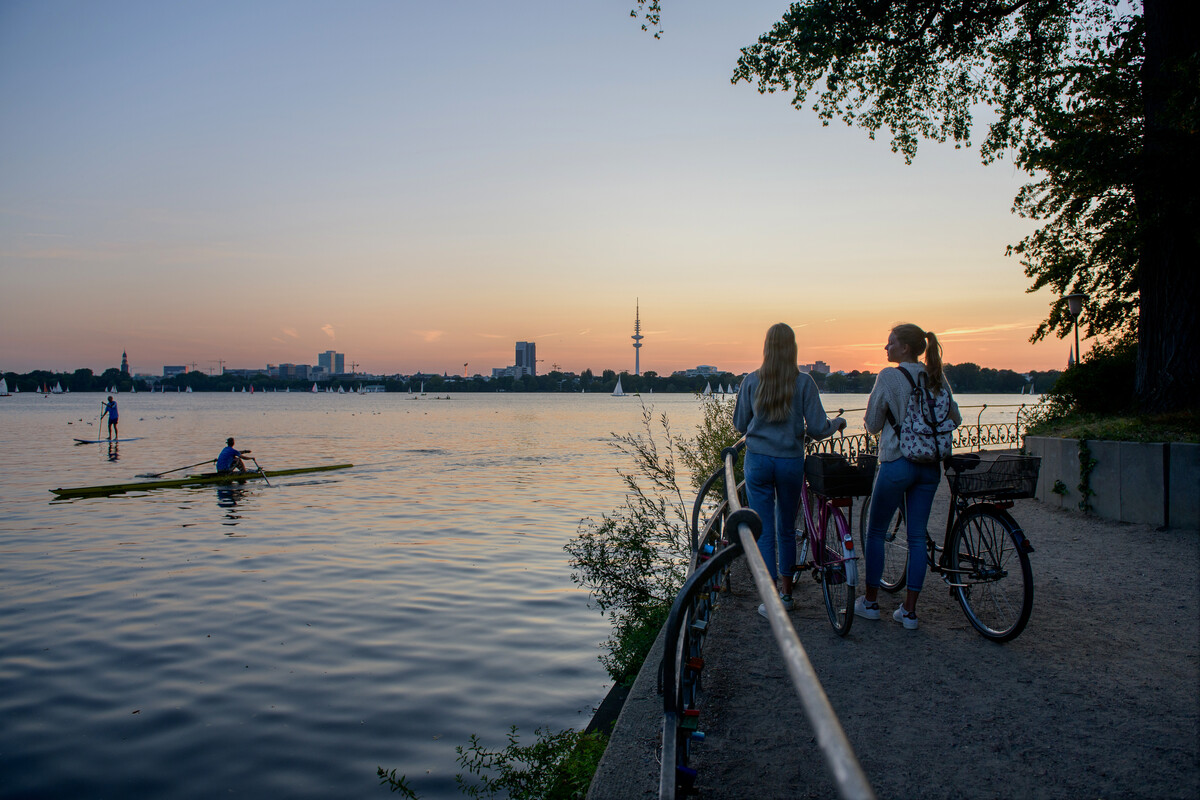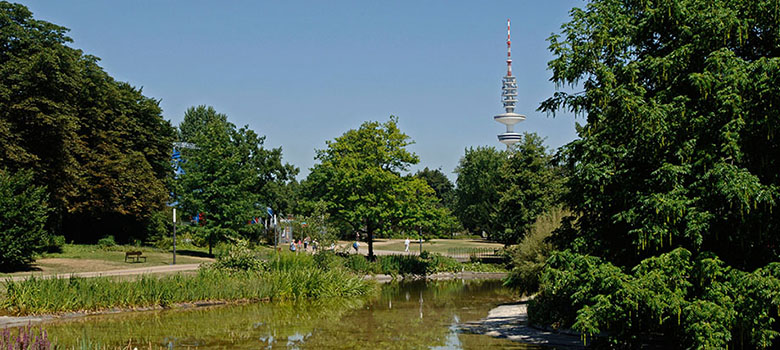A perfect day in sustainable Hamburg

Hamburg is not only one of Europe’s most exciting city destinations, but also one of the greenest. As well as being home to the Elbphilharmonie Hamburg, renowned international museums and countless other places of interest, Hamburg is one of the most natural and greenest cities in the world: in fact, 34 percent of the municipal area are covered by parks, wooded lands, water, and nature reserves. And arriving in Hamburg is just as green: from all major cities in Germany, Hamburg can be reached in just a few hours using the ICE train – with no flights involved and a minimum carbon footprint.
Off to a good start.
You can start your perfect eco-friendly day in Hamburg with a visit to a farmers’ market – such as the beautiful Isemarkt in the district of Eppendorf. Here you can browse through fruit, veg, flowers and other fresh produce from the Hamburg region. For sustainable retail shopping, you can head over to the Schanzenviertel, the Karolinenviertel, Ottensen or St Pauli, where innovative shops and stores such as Bidges & Sons and “All my friends” offer a great range of sustainable, fair-trade and upcycling fashion items – many of these handmade and created by local designers. When it comes to sustainable neighbourhoods, the HafenCity, Hamburg’s innovative urban development project at the port, is of course also worth mentioning. Here, the “Osaka 9” pavilion provides unique insights into the HafenCity’s sustainability concept. All year round, ample green spaces such as the Stadtpark in Winterhude and the “Planten un Blomen” park in the old town are popular destinations for Hamburg’s locals, providing rest and relaxation in the middle of the city.

From coffee breaks to dinner nights
Fancy an eco-friendly coffee break? Hamburg is home to many cafés that take ethics to another level, e.g. with fair-trade coffee and coffee from local roasteries such as Elbgold and Burg. Traditional cafés such as “BioKonditorei Eichel” and “Kleine Konditorei” in Eimsbüttel, “Café unter den Linden” in the Schanzenviertel and the family-owned regional chain “Eis Schmidt” are but a few examples reflecting the gradual shift towards sustainability. Likewise, there are more and more restaurants with a focus on organic food and regional products. When it comes to vegetarian and organic cuisine, “Tassajara” in Eppendorf is a real pioneer. “Wehmann‘s Bistro” on the Elbchaussee and the HACO restaurant in St Pauli are further proof of the growing environmental and health awareness in Hamburg’s gastronomic scene. Meanwhile, the “Hobenköök” near the port is celebrated by the foodie community for its delicious Northern German creations – and for its attached market hall with fresh groceries from the region. And if you prefer a more modest dinner experience, why not pop over to “Schmitt Foxy Food” in the Schanzenviertel, where you can indulge in organic quality bratwurst and currywurst.
Low-impact overnight stays
Your eventful day in Hamburg is coming to a close and you head back to your eco-friendly hotel.nFor all nature lovers, the “Raphael Hotel Wälderhaus” is definitely worth trying: ever since it's opening as part of the 2013 International Building Exhibition, this innovative project on the Elbe island of Wilhelmsburg has been attracting a lot of attention. Built from timber and other natural materials, the 3-star hotel also includes a restaurant with a strong focus on sustainability. Low-impact accommodation and high environmental standards are also provided e.g. by the Scandic Hamburg Emporio in the city centre, offering guests an eco-friendly environment with natural wooden floors. Hotels bearing the “Certified Green Hotel” label, such as Privathotel Lindtner in Heimfeld, excel at ensuring sustainability by meeting strict criteria including eco-friendly energy and water supplies, sensible waste disposal, a sustainable food concept, and much more.




.jpg)


